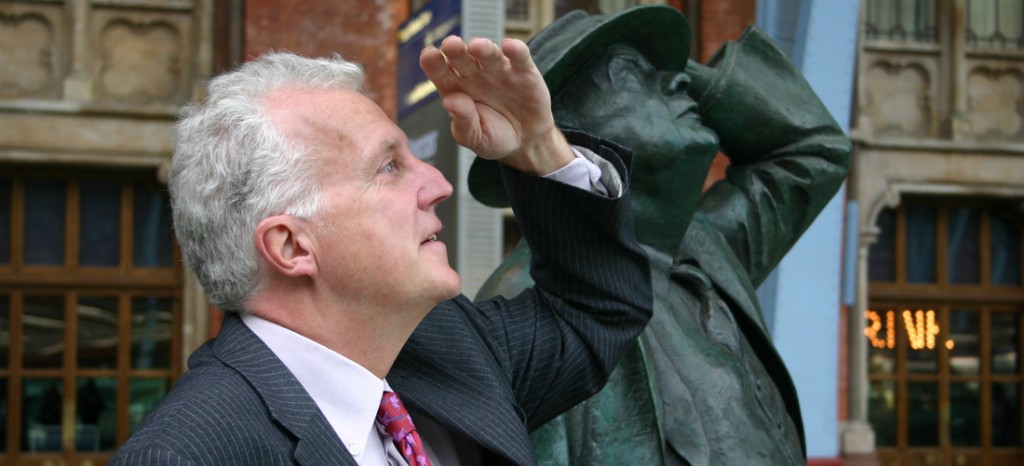I used to think that climate change would only affect my yet to be born grandchildren, so I didn’t bother doing anything. More recently, I thought my children, aged 16 to 26, so I began to worry slightly. And now that at 57, I realise that I am likely to be affected, should I live out my average life span and I am beginning to take the issue seriously.
The evidence that we cannot continue pumping greenhouse gases into the atmosphere at the current rate and maintain the viability of the planet is becoming irrefutable. We are wrecking the world, and the consequences are upon us now. The sceptics have, effectively, been routed. When the virtually certifiable Melanie Phillips, academics paid with the Exxon shilling and the odd Bush acolyte are the only remaining voices in the wilderness, you know that their arguments are bear no weight, despite the media attention accorded them.
I was never a climate change sceptic, but I was just a bit relaxed about it. I was wrong. Climate change clearly needs the mobilisation of government and public akin to that in the second world war. Two recent books outline the extent of the problem but manage to retain optimism that it is not too late. Paul Brown’s book, Global Warning, the Last Chance for Change (A & C Black, £19 95) is something of a literary oxymoron, a coffee table book on the damage on the planet being wrought by the human race with suggestions on what can be done to reverse the process. There are countless stunning photos with much use which are used both to demonstrate the sheer beauty of the world we live in as well as showing the effects of the abuse of our planet. The emphasis on making the book pretty means there is little space for words, though there is no doubting the compelling nature of the argument.
The thinking behind producing an expensive book on this subject is presumably to try to attract an audience that more austere efforts would not be able to reach. However, climate change, really, is too serious an issue for this type of treatment. The sheer prettiness rather jars with the thrust of the thesis.
So if you want hard bald facts and even more dire warnings, go for George Monbiot’s Heat (Allan Lane, £17 99). Monbiot argues that the human race has unwittingly entered into a Faustian pact. In return for the coal, oil and gas that has given us modern civilisation, we have paid the price of wrecking the planet.
He is particularly good on debunking the sceptics, revealing that much of their supposed research is either unsourced or comes scientists paid by oil companies or, in the case of David Bellamy, the TV environmentalist, simply a slip on the keyboard.
The target he sets us, however, seems almost impossible to achieve, a 90 per cent reduction in carbon emissions by 2030 although he gamely sets out ideas on how to get there. Some is relatively obvious, like mandating standards for housebuilding and, like Angela Merkel has done in Germany, launch a crash programme for insulation.
But on transport, his big idea does seem somewhat unrealistic. It is not, as many environmentalists suggest, to get people out of their cars and onto trains but, instead, to create an efficient network of coaches along the country’s motorways. Coaches are even more environmentally friendly than trains and have almost infinite capacity. The crucial idea would be to move coach stations out to outskirts of cities where they would have easy access to motorways, greatly reducing average journey times.
Monbiot outlines countless detailed prescriptions, on for example, how to cut emissions in the aviation industry (‘long distance travel, high speed and the curtailment of climate change are not compatible’) and the cement and retail (rather more practical suggestions) industries, but frankly, I am sceptical of the willingness and ability of politicians to take the decisive measures needed to tackle this issue.
Public opinion has definitely shifted in recent months, but it is nowhere near being prepared to accept the end of most international flying, or having to take coaches instead of drive. Despite the optimism of Brown and Monbiot, it is difficult to believe that they really think the public is ready for the radicalism of what they suggest, let along that politicians would be willing even to contemplate such measures. We are very much still at the Neville Chamberlain stage of this particularly war and nowhere near turning to Churchill yet. These books, however, will convince a few more people that appeasement is not an option.
